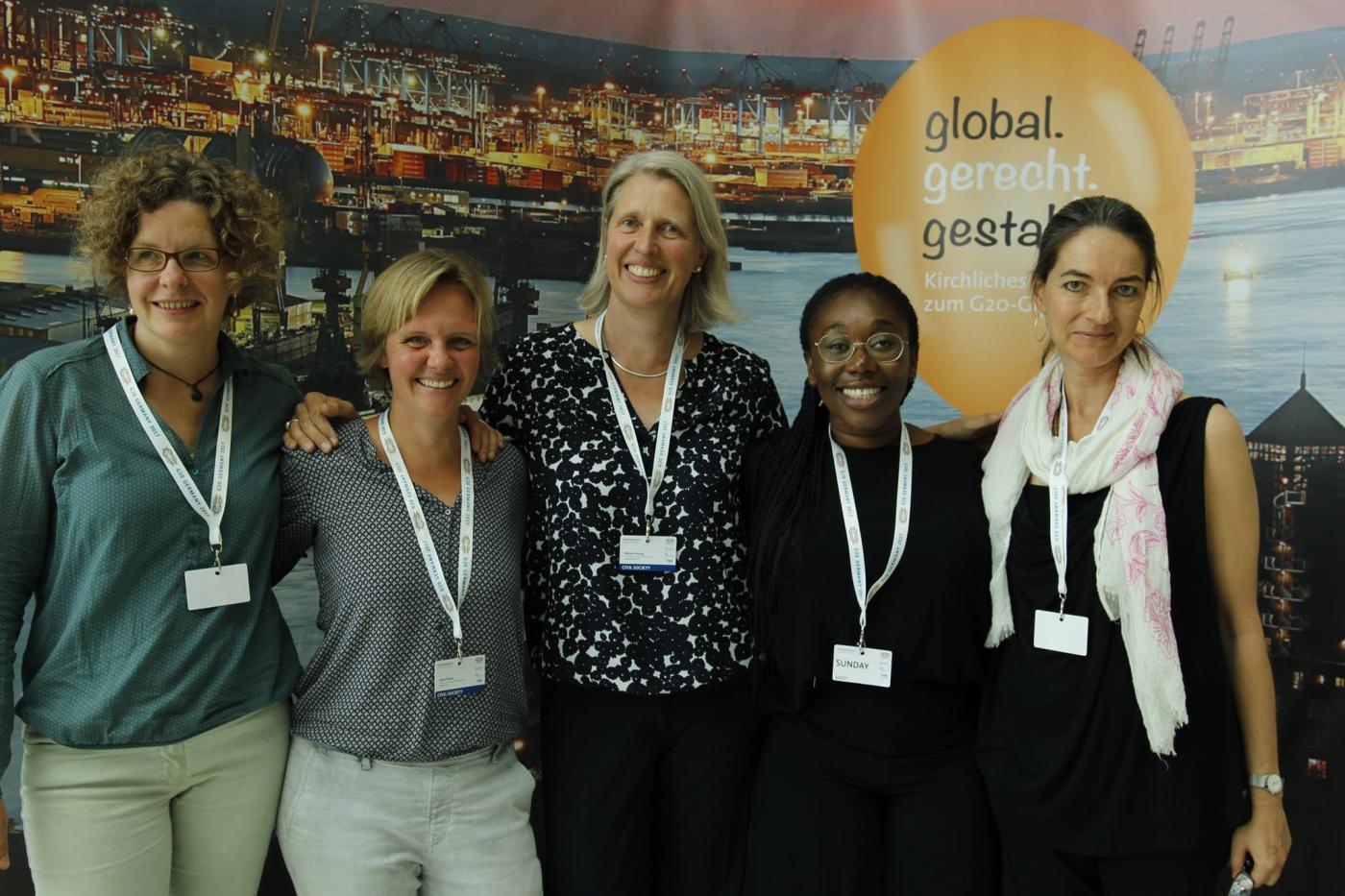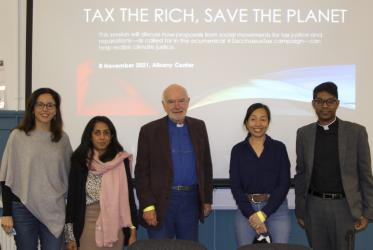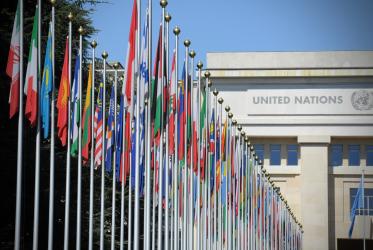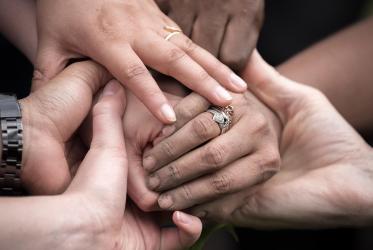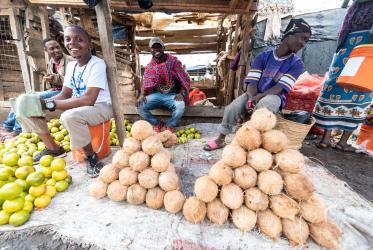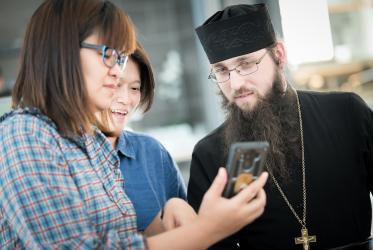With the slogan "global.gerecht.gestalten" (shaping globalization fairly), a Church Alliance for the G20 Summit has been established in order to actively partake in the preparation of the G20 summit. We are committed to participate in peaceful activities before and during the summit in Northern Germany.
With the alliance, we advocate for a sustainable and future-oriented development and emphasize the stance of the church on the topics of the G20 summit. The members include Christian churches in Northern Germany, Hamburg's main churches and congregations, academies and convents, as well institutions of the Evangelical Lutheran Church in Northern Germany covering the fields of social policy, education, deacon services and mission as well as ecumenical, diaconal, environmental and development policy offices. Also included are the national Protestant aid agency Brot für die Welt (Bread for the World) and the Evangelische Missionswerk Deutschland (Association of Protestant Churches and Missions in Germany).
We believe that the church is a firm part of civil society and should hence have an active role shaping the future with and for our contemporaries. More important however, are the topics that are being discussed at the G20 roundtable, which are topics that have been central to the work of the church for many decades.
Climate justice, poverty elimination and sustainable development have become areas of expertise of the church. The G20 summit revealed itself as a momentum to make the experience-based voice of the church heard and considered by policy makers.
So how does the church make its voice heard? By singing? To quench all doubts, yes, we sang and composed a G20 song with the title: “Bring your own chair”. With this song we want to actively invite all parties that are not sitting at the G20 roundtable to bring their own chair to the table and make their voices heard.
However, we didn’t stop there. The Church Alliance for G20 also organized a comprehensive series of events around the topics of the summit. With over 50 events the church provided an intellectual and informative platform for discussion and discourse for civil society. All events were well-frequented and generated a pool of new perspectives and suggestions for solutions.
All endeavours culminated in the G20 ecumenical church service on July 8th at St. Katharinen in Hamburg. With more than 700 guests the Church Alliance for G20 celebrated a spiritual service with strong political nuances and made its stance clear: In order to achieve global justice, we are challenged to re-evaluate our attitudes and our behaviour towards one another and God.
We need to renew our hearts (Ezekiel 36:26-27), as Dr. Agnes Abuom (moderator of the Central Committee of the World council of Churches) and Charles Jason Gordon (Bishop of the Catholic Church in Barbados) reminded us with their preaching on Saturday.
Besides the sermon at the G20 ecumenical church service Dr. Abuom engaged with German and international civil society during the G20 global solidarity summit in a panel discussion concerning gender justice and women’s empowerment. She also engaged on a more personal level with employees of the “Zentrum für Mission und Ökumene” where she pointed out the imminent necessity for sustainable economic growth, women’s participation in the ecumenical movement and progressive investment in Africa.
If you would like to know more about activities in Hamburg, please visit: www.global-gerecht-gestalten.de
Intercessory prayers in German and English are available at: www.global-gerecht-gestalten.de/wp-content/uploads/Friedensgebete_G20_Modul-5.pdf
